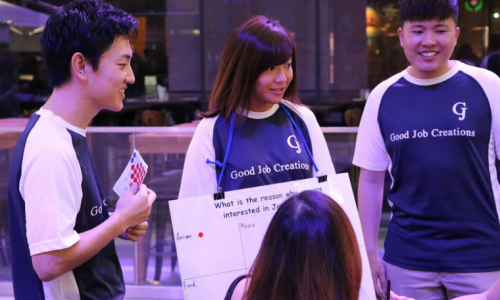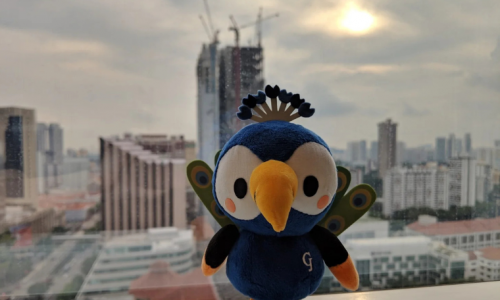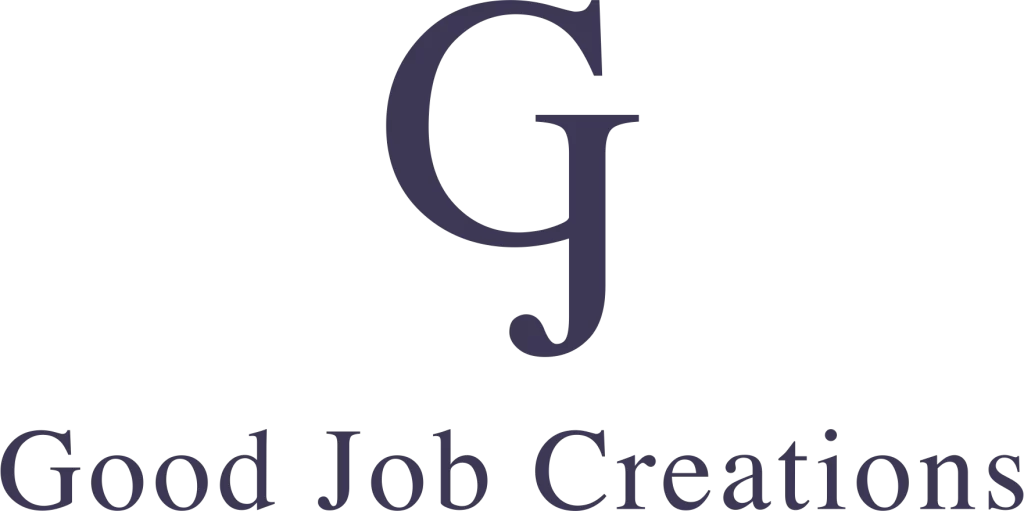Transcript of podcast:
Destiny: Welcome to GJC’s podcast, I’m your host Destiny Goh.
We just rang in the year 2024, and now a month has passed, how time flies! In 2023, I’m sure we all had our fair share of growth, challenges, both good and bad times, but the important thing is that we keep moving forward.
With me here today is Kento Joko, who’s in Business Development for close to three years now at Good Job Creations and a Japanese who’s currently working and living abroad. Having previously lived in the U.S and Germany, he’s most certainly enjoying it here in sunny Singapore.
Welcome Kento! Thanks for joining me here today.
Kento: Hello, thank you for having me.
Destiny: So, Kento, as a Japanese living and working abroad, what are some similarities and differences in terms of culture, working style and the community here in Singapore
Kento: I’m going to give a very unbiased opinion on this, as I’ve never worked in Japan before, but these are based on my observations, and the conversations I’ve had with friends and family.
So, I was quite surprised at how Singaporeans are so dedicated to their work, and how they complete them efficiently — they walk fast, they talk fast, and even the hawker uncles and aunties, they cook so fast because they have to accommodate to at least 10 waiting customers at a time.
Before I came to Singapore, I imagined that the work culture in Singapore will be much more relaxed as in contrast with Japan, but I was proven wrong. Rather, I think I began to see just how intense some environments can get; decisions are made in seconds and people tend to dislike inefficient activities during work—but that doesn’t necessarily mean it’s a bad thing either. Time is precious, I’ll leave it all at that.
In contrast to the Japanese culture, I feel when it comes to decision-making, they seem more careful and deeply weigh every aspect before making the final call. I feel it’s also through this practice that people value the connection of humanity when it comes to work or personal.
In regard to community, I think Singaporeans are generally more straightforward in terms of voicing their own opinions–they just say what comes to their mind. But for us Japanese, we tend to keep our thoughts to ourselves, it may be our upbringing but it’s something we could learn as well.
This is in no way to say one work culture is better than the other, I just think every culture has its own unique aspects.
Destiny: So, what or who inspired your decision to work abroad? From experience, it’s never really easy to pack up your entire life to just move away from your family.
Kento: Well in this case, I’d say it’s my dad. When I was three years old, our family relocated to the United States for 2 years, then Germany for another 3 years. It wasn’t just about moving but learning and adapting to the differences I encountered. Even as a child, I understood the importance of making the most out of anywhere you go, and to savour every moment of it.
During that stage of my life, I had a vision of exploring the outside world, whatever opportunity it may be. This vision was sparked when I was studying with students of different nationalities at an international school in Germany.
The idea itself was foreign yet fascinating, because how often does one have the opportunity where you get to explore what other countries had to offer, in terms of culture, knowledge, history, entertainment, community and amazing landmarks, just like I did living abroad.
The things you can learn and experience, just being at a different place is so precious. I’m proud to say it’s my third year now living and working in sunny Singapore, yet there’s still so much to learn here.
Destiny: Wow, that’s really great to hear from you! So, after being in GJC and involved in recruitment for about three years now, what do you think is a should-have mentality or approach in any career?
Kento: In my opinion, if I were to narrow it down, I think there are 3 important mentality or approaches that applies to every line of work. The first is the willingness to learn from others. I feel this is easier said than done, because it requires humility to want to ask for help. But then again, when we look for resources to help our development, some, if not most, are available right in front of us.
Just think of how much one can learn from others, how they think, why they think in such a way, how they problem solve, how they lead others and why people follow. While it’s important to create your own experiences, I believe you can incorporate the advice, lessons and knowledge you learn from others into your own.
It’s like this analogy whereby how new novels’ are written–no one really comes up with a complete original idea of their own, writers in fact, get their inspiration from reading the works of others, and then come up with something better, something new — it’s a process of improvement from one work to the next. I think, with that, it’s important to keep in mind to respect the ideas of others.

Destiny: Wow that’s a really interesting analogy you made there.
Kento: Next, a positive mindset. There are highs and lows in every single career, but merely exhausting your options to keep yourself motivated isn’t going to cut it, it’ll eventually lead to burn out. I think it’s good to sometimes pause and reflect the ‘why’s’, not too much on the ‘how’s, once you figure out your purpose, you’ll work towards it strategically.
A positive mindset isn’t created, it creates. Sometimes, when the going gets tough, I think it’s so important to be around like-minded people that spur you toward growth, who encourage you to see the bigger picture and to journey with you. A positive mindset contributes to better mental health — it helps you see things in different perspectives regardless of the situation, in return, you get better at problem-solving, brainstorming and so much more.
Lastly, resilience. I think this element gets confused with grit often because of how closely related they’re involved in the face of challenges and setback. Grit refers to the perseverance and passion required to achieve long-term goals; resilience is the ability to bounce back from setbacks. But these two qualities go hand in hand, resilience is crucial for grit development because it helps develop strength and persistence, and grit helps you persevere.
Destiny: You just reminded me of the book I always go back to—Grit, by Angela Duckworth, where she explains how passion alone can’t sustain you in the long run, you’ll need a whole lot of grit couple with resilience to go all the way.
I like how you mentioned these aspects that we all can and should work on because sometimes I feel that we underestimate how powerful they can be—it’s tough work especially because you need to work on them every single day to achieve some sort of form of success—work or personal. Ultimately, I feel that people aren’t and shouldn’t be shaped and defined by their experiences, but the values, mindset and the approach that they choose.
Kento: That last bit is so true; just like how just because you have a bad morning, doesn’t mean it’s a bad day.

Destiny: We just welcomed the New Year not too long ago, what are your thoughts on Setting Goals versus New Year resolutions?
Kento: There was a time where making new year’s resolutions were all the hype, especially with the whole ‘new year, new me’ tagline, and most people just fall through with their resolutions because they’re expecting to see immediate results. For example, signing up for a gym membership at the start of the year and then not stick with it because it obviously takes time, effort and discipline to even get to the gym.
On the other hand, I feel setting goals keeps you focused in achieving the goals and target set, but this is where you must invest time, effort and energy in making it work. So instead of making a resolution like you’re signing up for a gym membership, how about writing something like ‘I want to intentionally make healthier choices and stay more active this year.’
So, then you set little weekly goals, then maybe cut out processed meat for a week or two, go for evening walks, all these are attainable and relevant to your end goal; by the end of the week, you’ll be able to see the progress you’ve made.
Destiny: That’s an interesting analogy, because now that you mentioned breaking a big goal into bite-sizes, it’s much easier to attain. For those who want to see progress immediately, there it is. When you realise what you’re working on actually works, you’ll be driven to work on bigger ones.
So, the question still stands: how do you suggest we stick to the goals we make?
Kento: That’s a good question. I think being consistent is a crucial component in achieving any goal; it’s easier said than done but here are some ideas that I’ve found effective for myself in building consistency:
The first one will be setting measurable, achievable and time-bound goals. A clear target keeps you motivated throughout the beginning of a whole new adventure. I’ve found the SMART concept still stands useful to this day because everything is clearly defined and written in plain sight
Next, I’m a firm believer of creating healthy habits leading to consistency. So, start somewhere and start with smaller goals then work towards the larger ones. If you want to change your life, change your habits. If you want to create a habit, start with a routine.
The third will be to get others onboard; share with them your achievements and activities and get them to keep you accountable. This greatly helps you to stay motivated and even more difficult to turn away from the goal you’ve set. These people will remind you like “hey didn’t you say you were working on that? How’s your progress going?” Little check-ins like that goes a long way.
Lastly, acknowledge that the road to achieving any goal is not going to be a short one, it will be a long journey, but it’s also very important to enjoy the process and celebrate small wins.
I think real, true satisfaction comes from knowing the amount of effort and time you put in to achieve the goals you set for yourself; I think this process really does change you as a person and your mindset.

Destiny: I really like what you said about ‘if you want to change your life, change your habits’. I think that’s something people do occasionally forget, because habits do really matter.
Being a Business Development personnel for the last 3 years, I’m sure the audience would want to know from your conversations with so many hiring managers, what are some of the requirements and soft skillsthat they look for in their potential candidates?
Kento: Every company’s demand of requirements and soft skills are similar yet differs from each other, but they all have one understanding: they’re looking for people who can contribute to company growth.
Some soft skills that hiring managers request are self-starters, in other words, individuals who take initiative on the job. These are the people who don’t just sit around waiting to be spoon-fed with answers —they’re self-motivated, creative—this initiative drives innovative behaviours, the constant desire to upskill and do better, to learn new things. They’re all about maximising productivity and utilising their time well.
Next, is creative thinkers, and this skill is highly valuable in many aspects, like problem-solving, brainstorming, idea formulation and so on. Creativity, in a way wires people to be resourceful; they would also have a keen eye for identifying things that most people don’t notice.
For an example, we had a client looking for an individual for a role that has no standard guidelines as the landscape of this industry changes quite often. Specifically, a creative minded person who can make good judgement and analyse the risk that comes with it.
Destiny: Wow that’s so good. Because I once used to think that being creative was just an artsy-fartsy skillset but apparently, it’s not.
So, I think, it’s not just solely being creative, it’s also being able to explain the reason behind the idea and account for it.
Kento: Yes, because I believe creative people are also somewhat far-sighted individuals, who probably see 4-5 steps ahead of the rest. Coupled with today’s landscape that’s constantly changing, I think it’s beneficial to be able to think creatively, think out of the box and practice the whole trial and error, so you’ll know what works and what doesn’t.
Destiny: It seems that character and personalities are equally just as important. Through your experience, what are some of the assessment tools that hiring managers use to assess candidate’s personality and traits, and why?
Kento: From my knowledge, while speaking to some clients, hiring managers use assessment tools as part of their hiring process to gain a better understanding of who they will be potentially working with, beyond their skillset and qualification that’s stated on paper.
Personality tests, for example are to help streamline candidates on factors ranging from organisational culture fit to even career or role-specific paths.
There are some characters assessment tools that I’m aware of, that’s being used, such as DISC assessment, or job-specific assessment questions that’s created by the companies themselves.
I guess you can say that the final results will show the traits of people without any manipulation whatsoever. It gives the hiring manager a full, transparent view of how they can best fit you into the organisation, culture and team.
Destiny: So it’s no longer just about hard skills, yes? Even though if a person can possess all the experience and qualification on paper, but doesn’t work well with others, it’s still something most hiring managers will think twice about?
Kento: Yes, quite right, because at the end of the day, individuals, or rather people make up the company culture—there a power in influence from one individual to another. It’s important to have people who are willing to be on the same page, and work towards growing the company as one.
Destiny: This was honestly such an eye-opener, I honestly never knew personality test were a thing during an interview stage, but I guess this shows just how people do value compatibility, connections and even alignment of company dynamics and culture.
Thank you, Kento, for giving myself and the audience an insider’s insight and perspective to what we just discussed. I’m excited about what the new year will bring for us, even as GJC, especially the people who are looking forward to another year of exciting growth.
Thank you for listening to GJC’s podcast. See you again, next time.






